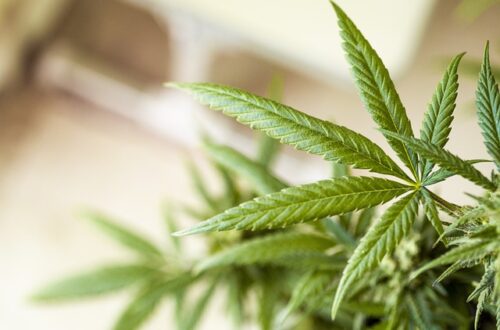THCa Flower for Beginners: A Comprehensive Starter Guide
Exploring the world of cannabis can be both exciting and overwhelming, especially for newcomers. One of the lesser-known yet fascinating aspects of cannabis is THCa flower. This guide aims to provide beginners with a thorough understanding of THCa flower and how THCa flower enhances wellness its benefits, and how to get started.
What is THCa?
THCa, or tetrahydrocannabinolic acid, is a non-psychoactive cannabinoid found in raw cannabis plants. Unlike THC, which is known for its psychoactive effects, THCa does not produce a “high” when consumed in its raw form. This makes it an attractive option for those seeking the therapeutic benefits of cannabis without the mind-altering effects.
How THCa Converts to THC
THCa converts to THC through a process called decarboxylation. This occurs when cannabis is exposed to heat, such as when smoking or vaping. The heat removes a carboxyl group from THCa, transforming it into THC, which is responsible for the psychoactive effects.
Benefits of THCa Flower
THCa flower offers a range of potential benefits, making it an appealing choice for various users. Some of the reported benefits include:
- Anti-inflammatory properties
- Neuroprotective effects
- Potential anti-cancer properties
- Anti-emetic effects, which can help reduce nausea and vomiting
- Appetite stimulation
These benefits are still being researched, and more studies are needed to fully understand the extent of THCa’s therapeutic potential.
How to Use THCa Flower
There are several ways to consume THCa flower, each offering a unique experience. Here are some popular methods:
Raw Consumption
Consuming THCa flower in its raw form is one way to enjoy its benefits without the psychoactive effects. This can be done by adding raw cannabis to smoothies, salads, or other dishes. This method preserves the THCa content, allowing users to experience its therapeutic properties.
Juicing
Juicing raw cannabis leaves and flowers is another way to consume THCa. This method provides a concentrated dose of THCa and other beneficial cannabinoids and terpenes. Juicing is a popular choice for those seeking a health-focused approach to cannabis consumption.
Topicals
THCa-infused topicals, such as creams and balms, can be applied directly to the skin. This method is ideal for targeting localized pain and inflammation without any psychoactive effects.
Choosing the Right THCa Flower
Selecting the right THCa flower can be a daunting task for beginners. Here are some factors to consider when making your choice:
Strain Selection
Cannabis strains vary in their cannabinoid and terpene profiles, which can influence the effects and benefits of the flower. Some strains are higher in THCa content, making them more suitable for those seeking its therapeutic properties. Researching different strains and their effects can help you find the right one for your needs.
Quality and Source
When purchasing THCa flower, it’s important to choose a reputable source. Look for products that have been lab-tested for purity and potency. This ensures that you’re getting a high-quality product free from contaminants.
Legal Considerations
The legal status of THCa flower varies depending on your location. In some areas, THCa is considered legal, while in others, it may be subject to the same regulations as THC. It’s important to research the laws in your area before purchasing or consuming THCa flower.
Potential Side Effects
While THCa is generally considered safe, some users may experience side effects. These can include:
- Dry mouth
- Dizziness
- Fatigue
- Changes in appetite
If you experience any adverse effects, it’s advisable to discontinue use and consult a healthcare professional.
Case Studies and Research
Several studies have explored the potential benefits of THCa. For example, a study published in the British Journal of Pharmacology found that THCa exhibited anti-inflammatory properties in animal models. Another study in the Journal of Neuroimmune Pharmacology suggested that THCa may have neuroprotective effects, which could be beneficial for conditions like Alzheimer’s disease.
These studies highlight the potential of THCa as a therapeutic agent, but more research is needed to fully understand its effects and applications.
Conclusion
THCa flower offers a unique opportunity for those interested in the therapeutic benefits of cannabis without the psychoactive effects. By understanding what THCa is, how it works, and the various ways to consume it, beginners can make informed decisions about incorporating it into their wellness routine. As research continues to uncover the potential of THCa, it may become an increasingly popular choice for those seeking natural alternatives for health and wellness.

